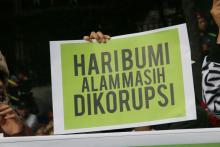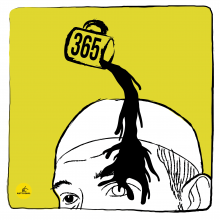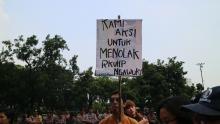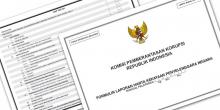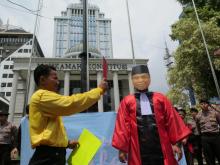The International Earth Day is commemorated every April 22nd. The Earth Day is a day designated to raise awareness and appreciation of the planet inhabited by humans, the earth. Initiated by a US Senator in the 1960s, Earth Day activities were followed by all countries in the world.
Finally, the Corruption Court sentenced the defendant of the e-KTP corruption case, Setya Novanto (Setnov), on Tuesday (24/04). Setya was sentenced to 15 years in prison with a fine of Rp 500 million, and also required to repay an amount of 7.3 million US dollars. The judge also revoked the political rights of the former Speaker of the House of Representatives for five years.
The pretrial judge again surprised observers through his decision in the South Jakarta District Court. The judge partially granted the lawsuit of the Anti Corruption Community (MAKI) that the Corruption Eradication Commission (KPK) appoints a new suspect in the Century Bank bailout corruption case as mentioned in the indictment of Budi Mulya’s.
April 11, 2018 is exactly 1 year after the assault against KPK investigator Novel Baswedan. A year ago, in the early hours of the morning, Novel was attacked by two unknown motorists who splashed acid on Novel's face. The incident resulted in damage to Novel's eye, which until now still has to undergo a series of medical treatments in Singapore.
KPK finally has a new Deputy for Enforcement after this position was vacated by Inspector General (Pol) Heru Winarko, who was inaugurated as Head of BNN. The new Deputy for Enforcement is Brigadier General Firli who previously served as the Chief of NTB Regional Police. The process of appointment, from the vacancy to inauguration, is relatively short, i.e. from the beginning of March to the first week of April 2018.
KPK and Corruption Court to be paralysed, corrupt officials to benefit
On Monday, March 5, 2018, the House of Representatives (DPR) returned to meet after finishing the recess period. One of the legislative works of the House of Representatives that needs to be noticed during this current session is the process of deliberation of the Draft Criminal Code (RKUHP). The House of Representatives is targeting to pass the RKUHP to Law no later than April 2018.
The General Elections Commission (KPU) proposes that former convicts of corruption cases are to be prohibited from running for the 2019 Legislative Election. The KPU argues that the regulation aims to enable the public to vote for a legislative candidate with integrity.
The General Election Commission (KPU) plans to require all legislative candidates participating in the 2019 Legislative Election to submit the State Administrator Property Report (LHKPN). This obligation will be regulated in a KPU Regulation (PKPU) on the nomination of legislative members.
President of Indonesia Joko Widodo (Jokowi) inaugurated Arief Hidayat as a Justice of the Constitutional Court on Tuesday, March 27, 2018. Arief will serve his second term between 2018 and 2023. He has previously been a Justice of the Constitutional Court since 2013, however, some have expressed disappointment on his re-inauguration, due to a track record of ethical violations.
The non-active governor of Southeast Sulawesi, Nur Alam, was finally sentenced to 12 years in prison by the Panel of Judges of the Jakarta Corruption Court on March 28, 2018. Nur Alam was also required to pay a substitute of Rp 2.7 billion and had his political rights revoked for 5 years after serving his sentence.


